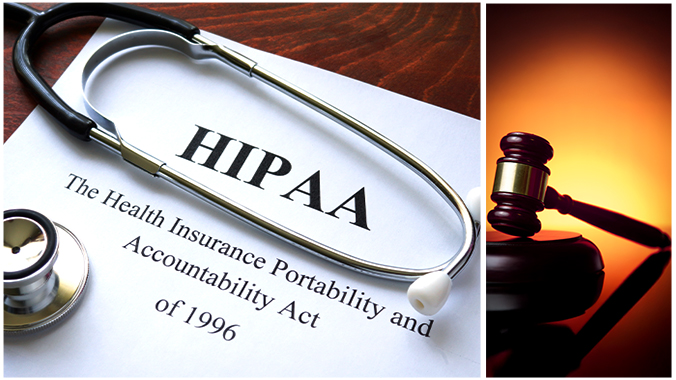Trans People’s Legal Issues in the Workplace (Axiom’s Event)



On-Demand: July 13, 2023
Subscribe to Federal Bar Association CLE Pass...
Co-Sponsored by myLawCLE
Get this course, plus over 1,000+ of live webinars.
Learn More
MCLE Credit Information:
Select Your State Below to View CLE Credit Information
Tuition: $95.00
Training 5 or more people?
Sign-up for a law firm subscription plan and each attorney in the firm receives free access to all CLE Programs
Program Summary
This CLE course provides an overview of the legal issues faced by transgender individuals in the workplace. Our expert presenters will delve into the historical context and landmark cases that have shaped trans rights, including the recent groundbreaking ruling in Bostock v. Clayton County. We will explore the Biden Administration's application of Bostock and how it applies to laws such as Title IX, the Fair Housing Act, and the Immigration and Nationality Act. We will also discuss ongoing state legislative efforts, the intersection of transgender rights with employment discrimination, and best practices for creating an inclusive work environment. The course concludes with an interactive Q&A session.
This course is co-sponsored with myLawCLE.
Key topics to be discussed:
- Historical cases: Price Waterhouse v. Hopkins and Glenn v. Brumby
- Bostock v. Clayton County: Procedural history, holding, and scope
- Biden Administration's application of Bostock
- State legislative efforts and impact on trans rights
- Best practices for names, pronouns, and terms of address
- First Amendment counterarguments: compelled speech and religious freedom
Date / Time: July 13, 2023
![]()
Closed-captioning available
Speakers
 Olivia Hunt | National Center for Transgender Equality
Olivia Hunt | National Center for Transgender Equality
Olivia Hunt is Policy Director at the National Center for Transgender Equality. She works with state and national coalition partners and government officials to craft policies on issues affecting transgender people, primarily focusing on identity documents and privacy.
In 2015 and 2016, Olivia served as an Equal Justice Works AmeriCorps Legal Fellow at Whitman-Walker Health in Washington, DC, where she oversaw the name and gender marker change program that serves transgender clients throughout DC, Maryland, and Virginia. Prior to joining NCTE, she has also been in-house counsel to a biotech startup, and has worked in international election law and municipal law.
 Kate Traub | Axiom
Kate Traub | Axiom
To begin her career, primarily worked as legal counsel for small business, startups, arts and entertainment, and soft intellectual property law. From 2017 to 2022, she served as General Counsel and Chief Operating Officer of Tanoshi, a kids computing startup that she also co-founded. During her time at Tanoshi, she was the primary contact on every legal issue or challenge that crossed that company’s desk. These days, she works for Axiom Law as product counsel in the charitable giving business unit at Meta. Kate received her JD, her undergraduate degree in Comp Sci, and her MS in History of Science and Technology from Georgia State, as well as an LLM in IP from Santa Clara University. She currently lives in San Francisco, just South of Market, where she is an active part of the community and proud to be accepted as a queer trans woman.
 C.P. Hoffman | National Center for Transgender Equality
C.P. Hoffman | National Center for Transgender Equality
C.P. Hoffman (they/she) serves as Senior Policy Counsel at the National Center for Transgender Equality. Prior to joining NCTE, they served as Policy Director of FreeState Justice, Maryland’s statewide LGBTQ+ advocacy organization; worked in-house advising the nation’s leading digital accessibility service’s firm on trends in accessibility litigation; practiced antitrust law in New York City; and published broadly on law and social justice, gender, and popular culture, as well as intersections of the three. C.P. holds a J.D. from the University of Illinois College of Law, as well as an LL.M. from the McGill University Institute of Comparative Law.
Agenda
I. NCTE and its history | 3:00pm – 3:04pm
II. History of trans rights in the workplace pre-Bostock | 3:04pm – 3:10pm
- Price Waterhouse v. Hopkins (SCOTUS, 1989) – discrimination in employment on the basis of sex stereotyping is impermissible sex discrimination under Title VII
- Glenn v. Brumby (11th Cir., 2011) – discriminating against a transgender employee because of their “gender non-conformity” constitutes sex-based discrimination under the Equal Protection Clause; applies intermediate scrutiny
III. Bostock v. Clayton County (SCOTUS, 2020) | 3:10pm – 3:20pm
- Procedural history
- Holding – discrimination on the basis of sexual orientation or gender identity is necessarily also discrimination “because of sex” as prohibited by Title VII
- Scope: Title VII; Price Waterhouse still applies
IV. Biden Administration application of Bostock reasoning | 3:20pm – 3:30pm
- Executive Order 13988, Preventing and Combating Discrimination on the Basis of Gender Identity or Sexual Orientation (January 20, 2021) interprets Bostock as applying to other laws that prohibit discrimination on the basis of sex:
- Title IX
- Fair Housing Act
- Immigration and Nationality Act
- Statements of interpretation
- Education statement on interpretation of Title IX
- Other statements
- Rulemaking
- Title IX (general) – June 2022 NPRM, final rule pending
- Affordable Care Act – July 2022 NPRM, final rule pending
- Title IX (athletics) – April 2023 NPRM
V. Preemption and current state legislative efforts | 3:30pm – 3:40pm
- Restrictions
- The state legislative actions targeting trans people haven’t touched directly on employment discrimination. They do impact other aspects of trans people’s rights however
- State Protections
- 24 states, DC, Guam, Puerto Rico, and USVI have trans-inclusive employment protections under state law
- 10 states explicitly interpret the prohibition on sex discrimination as including sexual orientation and gender identity (i.e. Bostock reasoning)
VI. Best Practices: Names, pronouns, and terms of address in the workplace | 3:40pm – 3:50pm
- Basically, no legal definition or restriction in any state
- “Legal names” are not binding on workplace interactions in most contexts (IDs, email addresses, name tags, etc.)
- “Legal gender” does not meaningfully exist and should not be an obstacle to treating a coworker respectfully
- Best practices: self-attestation on gender markers and related fields, use of chosen name, access to gendered facilities/programs, err on the side of respectful to promote a more inclusive workplace
VII. Q&A, conclusion | 3:50pm – 4:00pm
More CLE Webinars
Trending CLE Webinars


























Upcoming CLE Webinars
























































![The Cloud and GenAI: Security, Audits, and the Related Ethical and Legal Responsibilities [Part 3]](https://federalbarcle.org/wp-content/uploads/2024/10/The-Cloud-and-GenAI_myLawCLE.jpg)










